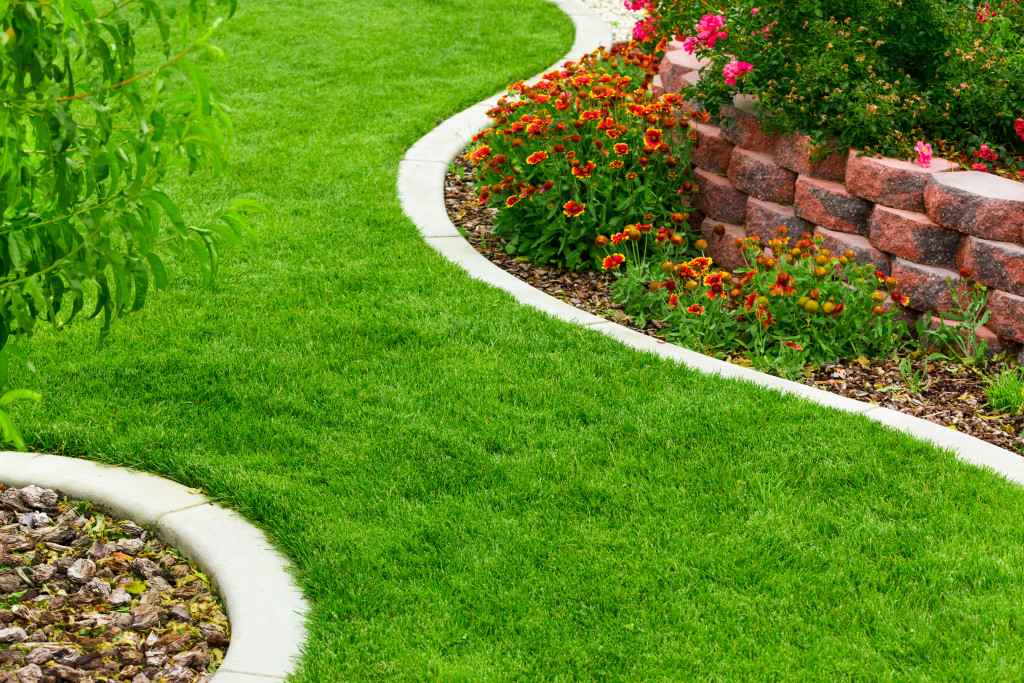- Understand regional climate to anticipate weather and choose the right plants. You can use local meteorological forecasting.
- Invest in quality tools and supplies to protect your plants, fertilize them again, remove pests, etc.
- Build a barrier around your garden to keep out unwanted pests and wildlife.
- Adjust your gardening care routine as per the season. During winter, consider adding a winterized sprinkler system.
As a homeowner, it’s essential that you take good care of your home garden. Your precious plants, flowers, and vegetables need your constant attention and protection. But how do you maintain a healthy and thriving garden throughout the year? What steps should you take to protect your garden from unpredictable weather and pests? In this blog, you will learn important things you need to know to protect your garden through all seasons.
Understand the Climate in Your Region
The first step you need to take is to understand your local climate. Different regions have different temperatures, rainfall, and humidity levels, and these factors play a crucial role in the growth and maintenance of your home garden.
You can check out your local weather forecast and consult with local gardeners or agricultural extension agents to determine the best plants and crops to grow in your area. Understanding your regional climate can also help you anticipate extreme weather conditions such as heatwaves, droughts, and storms and take appropriate measures to protect your garden.
Invest in Quality Tools and Supplies
You must invest in quality tools and supplies to maintain a healthy garden. This includes a sturdy shovel, a high-quality watering can or hose, gardening gloves, fertilizer, insecticides, and other supplies to help your plants thrive.
Make sure you buy from trusted brands and suppliers, and don’t be tempted to cut corners on prices. Cheap and low-quality tools and supplies can damage your garden, harm your plants, and even pose a risk to your health and safety.
Build a Barrier Against Pests and Wildlife

One of the biggest threats to your home garden is pests and wildlife. Birds, rabbits, deer, and other creatures can easily damage your plants and crops and spread diseases. To prevent these threats, you need to build an effective barrier around your garden.
This can be a fence, a wall, or a net made of durable material that can withstand the weather and keep out unwanted visitors. You can also use natural remedies such as lavender, mint, or garlic, which repel pests and mask the scent of your plants.
Adjust Your Garden Care Routine for the Seasons
Finally, it’s essential to adjust your garden care routine for each season. Your garden has different needs at different times of the year, and you need to adapt your watering, fertilizing, pruning, and harvesting schedule accordingly. Here’s a short, helpful guide to this:
Spring
For spring, you’ll want to focus on pruning and fertilizing your plants, as well as weeding out any unwanted growth. You’ll also want to make sure to water your plants regularly and keep an eye out for any signs of pests or disease.
Summer
During the summer, it’s essential to keep up with regular watering and fertilizing. You’ll need to check your plants frequently for any insect infestations or diseases, as well as add shade cloths where needed. Additionally, you should harvest any ripe fruits and vegetables as soon as possible to avoid spoilage.
Fall
In the fall, you’ll want to start preparing your garden for winter by weeding out dead foliage and pruning any weak branches. Additionally, you’ll need to cover your plants with mulch or blankets and apply insecticides if necessary.
Winter

Lastly, during the winter, you’ll want to continue weeding and pruning your plants. You should also add extra nourishment with compost or manure and keep an eye out for any pests that may have survived the colder months.
You also need a winterized sprinkler system to prevent them from freezing. A winterized sprinkler system is equipped with features that prevent the pipes from freezing and bursting, which can cause extensive damage to your garden.
The system could include frost-resistant pipes, insulation for any exposed parts, and a freeze control valve that shuts off the water flow when the temperature drops below a certain level. It’s essential to winterize your sprinkler system to protect your garden from cold weather damage.
Protecting your home garden through the seasons requires understanding your local climate, investing in quality tools and supplies, building a barrier against pests and wildlife, and adjusting your care routine according to each season.
With these tips in mind, you can ensure that all your plants will thrive year-round without any problems. Always consult experts when protecting your garden from extreme weather conditions or other potential dangers to keep it looking beautiful for years to come.

